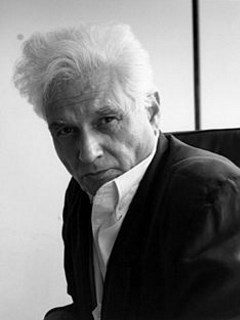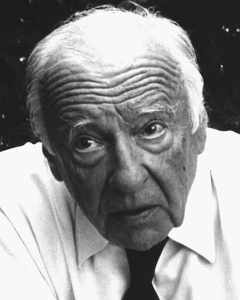John D Caputo
with Caruana John, Cauchi Mark (2016). The insistence of religion in philosophy: an interview with John D. Caputo. Symposium, 20 (1), 11-31. https://doi.org/10.5840/symposium20162012.
(2011). Hospitality and the trouble with God. In R. Kearney & K. Semonovitch (eds.) Phenomenologies of the stranger (pp. 83-97). New York: Fordham University Press.
(2004). Good will and the hermeneutics of friendship: Gadamer, Derrida, and Madison. Symposium, 8 (2), 213-225. https://doi.org/10.5840/symposium20048224.
(1999). God, the gift, and postmodernism. Bloomington, Ind.: Indiana University Press.
(1998). An american and a liberal: Response to Michael Zimmerman. Continental Philosophy Review, 31 (2), 215-220. https://doi.org/10.1023/A:1010085029693.
(1998). To the point of a possible confusion: God and il y a. In D. Martino (ed.) Levinas (pp. n/a). Pittsburgh: Simon Silverman Phenomenology Center.
(1997). Dasein. In L. Embree (ed.) Encyclopedia of phenomenology (pp. 133-137). Dordrecht-Boston-London: Kluwer.
(1995). Dark hearts: Heidegger, Richardson, and evil. In B. Babich (ed.) From phenomenology to thought, errancy, and desire (pp. 267-275). Dordrecht: Springer.
(1994). The age of repetition. Southern Journal of Philosophy, 32, 1994.
(1992). The question of being and transcendental phenomenology: Reflections on Heidegger's relationship to Husserl. In C. Macann (ed.) Martin Heidegger (pp. 326-344). London: Routledge.
(1991). Deconstructing institutions: a reply to Dauenhauer. Human Studies, 14 (4), 331-337. https://doi.org/10.1007/BF02205612.
(1991). Heidegger's Kampf the difficulty of life. Graduate Faculty Philosophy Journal, 14 (1), 61-83. https://doi.org/10.5840/gfpj199114/152/117.
(1989). On mystical and other phenomena. In E. F. Kaelin & C. Schrag (eds.) American phenomenology (pp. 318-322). Dordrecht: Kluwer.
(1989). Towards an american pragrammatology: a response to prof. Sallis. Man and World, 22 (2), 257-259. https://doi.org/10.1007/BF01256650.
(1988). Book reviews. Man and World, 21 (1), 107-126. https://doi.org/10.1007/BF01255663.
(1988). From the deconstruction of hermeneutics to the hermeneutics of deconstruction. In H. J. Silverman, A. Mickunas, A. Lingis & T. Kisiel (eds.) The horizons of continental philosophy (pp. 190-202). Dordrecht: Springer.
(1987). The economy of signs in Husserl and Derrida: from uselessness to full employment. In J. Sallis (ed.) Deconstruction and philosophy (pp. 99-113). Chicago: University of Chicago Press.
(1986). Heidegger's philosophy of science: the two essences of science. In J. Margolis, M. Krausz & R. M. Burian (eds.) Rationality, relativism and the human sciences (pp. 43-60). Dordrecht: Springer.
(1986). Horizontal hermeneutics and its delimination. Man and World, 19 (3), 241-251. https://doi.org/10.1007/BF01249362.
(1984). Husserl, Heidegger and the question of a "hermeneutic" phenomenology. Husserl Studies, 1 (1), 157-178. https://doi.org/10.1007/BF01569213.
(1982). Hermeneutics as the recovery of man. Man and World, 15 (4), 343-367. https://doi.org/10.1007/BF01250951.
with Lilly Reginald (1982). Toward the later Heidegger. Research in Phenomenology, 12, 213-219. https://doi.org/10.1163/156916482x00143.
with Zimmerman Michael E (1982). Journey to authenticity. Research in Phenomenology, 12, 235-239. https://doi.org/10.1163/156916482x00170.
(1979). Transcendence and the transcendental in Husserl's phenomenology. Philosophy Today, 23, 205-216.
(1977). The question of being and transcendental phenomenology: reflections on Heidegger's relationship to Husserl. Research in Phenomenology, 7, 84-105.
(1970). Being, ground and play in Heidegger. Man and World, 3 (1), 26-48. https://doi.org/10.1007/BF01596538.





